Spring always makes me hyperaware of the world as it yawns and stretches awake. The season creeps in, slowly rousing the flowers and coaxing warmth into the weather. It always seems to arrive just when I’ve forgotten that the world can be beautiful. The warmth of the sun hits my face like a bygone memory. I find myself wandering the streets wondering, how could I have forgotten the smell of fresh flowers? How could I have forgotten what hope feels like?
Spring makes me reflect on growth, both the personal and the professional kind. Specifically, it makes me think about the quiet, subtle growth that you only notice when its final form springs on you, unexpected.
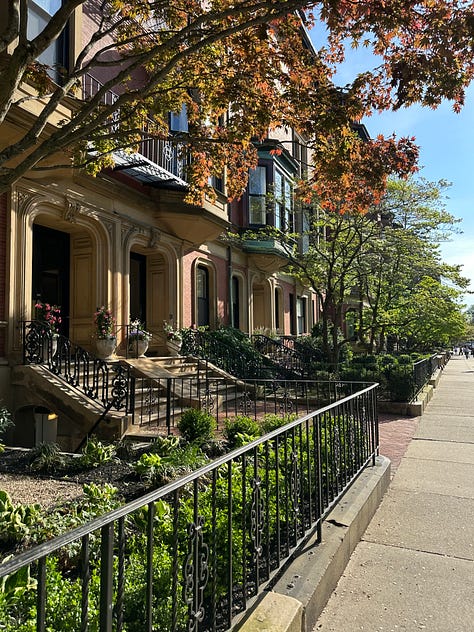
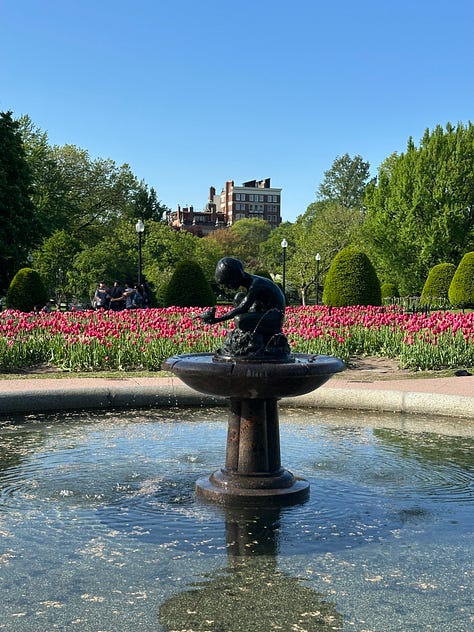
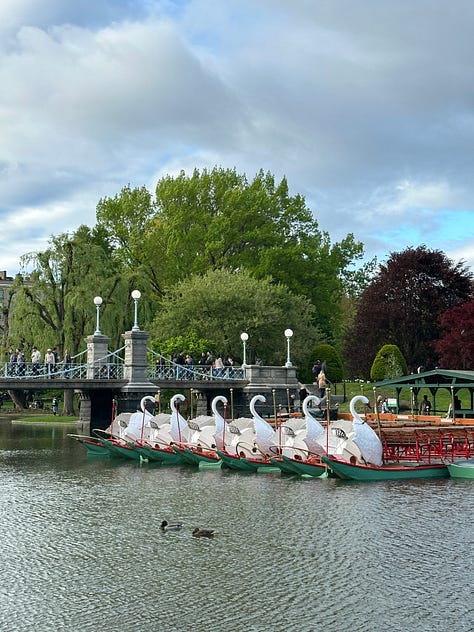
See, when I was fifteen years old, I decided I wanted to become a traditionally published author. That’s quite a young age for such a large dream, I’m aware. But I hit the ground running at seventeen when I snagged a spot in a coveted publishing mentorship program called Pitch Wars (which, sadly, no longer exists. RIP Pitch Wars!).
The purpose of this program was to allow new writers to be mentored by traditionally published authors. Over the course of a few months, the new writers would polish their manuscripts and submission packages with the guidance of the mentors, and at the end, their work would be to showcased to agents and editors, in the hopes of landing representation and, soon after, a book deal.
I, personally, didn’t land my agent during that experience. I certainly didn’t get a book deal either. Some could see this as a false start or even a failure. I wasn’t deterred. Even though I didn’t get a book deal, I did get a ton of industry knowledge, connections, and enough confidence that I just might be able to do this in the future—as long as I was tenacious enough. As long as I could stick it through.
A seed had been buried. It didn’t bloom when I thought it would, but I refused to stop watering it.
I didn’t grow up with industry connections or have a family member/teacher/well-connected person who could guide me through the maze that is traditional publishing. (For context, I’m the only person in my immediate family who even enjoys reading.) This isn’t to say that my family hasn’t supported me—they most certainly have—but I had to navigate the quiet rules and industry norms on my own. Every major decision, every course correction, was solely on my shoulders.
So you can imagine my frustration when the book deal didn’t come within that first year. Or the second one. Or the third.
I think the most frustrating thing about traditional publishing is that you never quite know why you aren’t succeeding in the way you want. You could guess, of course. But a lot of rejections from industry gatekeepers feel unspecific. It’s often difficult to draw a meaningful conclusion from their feedback—if you’re lucky enough to get feedback at all.
Is it your prose? Should you tighten up the first act? Maybe your first chapter is bad. Maybe your query is worse. Or maybe it’s market timing—there are too many books like yours on the shelves. Or maybe there’s nothing like it, and there’s no sales record to prove that a book like yours could be successful. Maybe its multiple things at once. Maybe you’re only one decision away from fixing everything.
It’s even more difficult to discern what’s going on if you’re a marginalized author. Like, did you get that rejection from that agent because there actually is something confusing about your main character, or that agent/editor just racist? If your book wasn’t sapphic, would it actually be more successful, or is that your internalized homophobia whispering in your ear?
I think everyone is a little in love with the idea of a career that starts strong and stays strong. The six-figure book deal that you get the day after you go on sub, with the agent you signed after a week of querying. Publishing is rarely so kind.
In reality, there’s often a lot of waiting for planted seeds to sprout, unsure if they ever truly will. Things rarely go as planned. Rainy days are common. And even if your dreams seem to be in reach (you get four offers of representation from agents…) there may be more disappointment down the road (…but your book doesn’t actually sell1). Suddenly you're worrying—what about the next achievement, the next number, the next validation?
It’s easy to wonder if you’ve missed your moment, especially if you’re watching everyone else bloom. But what I’m learning is that a slower pace does not immediately indicate failure. A faster pace does not always mean consistent success. There are too many factors for one single success or failure to set the trajectory of your career.
That’s why I think it’s essential to find joy in the parts of the process we can control. Not because it's easy, but because it’s sustainable. You can’t live for the book boxes, for the bestseller lists, for the blurbs from famous authors. You have to live for those moments late at night, in front of your laptop, when you write a sentence you’re actually proud of. You have to live to daydream, to sketch maps for your worlds, you have to live to storytell.
Personally, my journey was very, very long. Especially if we’re counting from the time I decided to pursue traditional publishing (2017) to when I actually got the deal (2024). I talk more about my debut path over in the Inner Parlour section of this newsletter:
I predict my journey will be even longer still. I love NECROGENESIS, don’t get me wrong, but I am not defined by the success or failure of my debut. I see myself as the culmination of every story I tell—and I want to tell a lot of them.
I love writing. I love storytelling. It is my favorite thing in the world. And I cling to that love and that passion during the difficult and disappointing moments. When things don’t go as planned or as quickly as I’d like, I always have the joy of storytelling.
Are things going well for me now? Absolutely. I love my editors, I love my imprint, and I love NECROGENESIS—I hope you do too, if you choose to read it!
But I know that this industry is unpredictable. The future may not be as bright. But that’s okay, because a writing career is long, nonlinear, winding. It asks you not for perfection, but for patience. For humility. It asks you to remember that the seasons are a cycle, that the dark days of winter soon lead to the colorful days of spring—and that a beautiful, blinding summer eventually gives way to a quiet, golden fall.
Anyway, for now, it is spring. Some plants bloom quickly, and others take their time. In the end, both feel the glorious warmth of sunlight just the same.
recommendations.
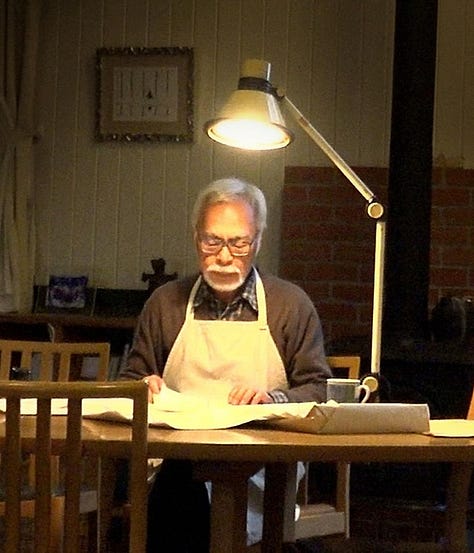
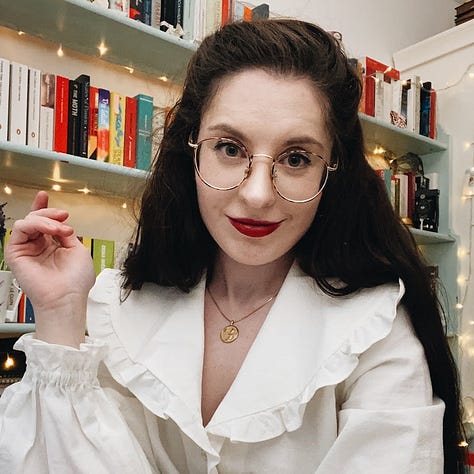
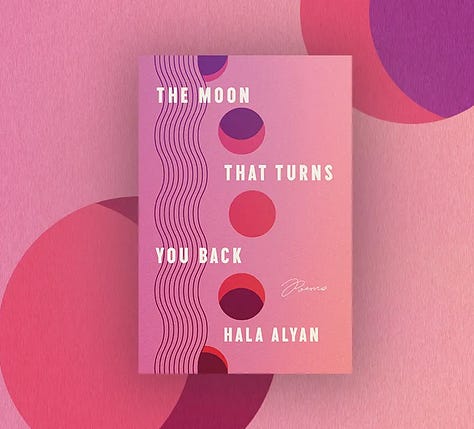
Miyazaki and the Heron. I balled my eyes out to this documentary. Absolutely beautiful, stunning, moving. If you love Ghibli, you need to watch this. The theme of making art out of love probably inspired a lot of this newsletter. Toward the end of the film, Miyazaki says, “If we don’t create, there’s nothing.” What a beautiful north star to guide one’s body of work. I’m so grateful to have seen The Boy and the Heron in theaters.
Next, Lady of the Library’s YouTube channel! Self-described as a “dark, bookish deep dive into literature, history, and philosophy—from the perspective of a PhD student”, I believe you’ll enjoy this channel if you like Lilith’s Muse. I especially enjoyed “Dante’s Hell: A Deep Dive into the Divine Comedy” and “How Books Shape Who We Become”.
The Moon That Turns You Back by Hala Alyan is a poetry collection that I’m still thinking about weeks after finishing it. It explores so many themes: beauty, grief, home, family, legacy, identity, displacement. I took my time with this collection. I think it took me over two months to read through it? I really wanted to let each poem linger, especially the interactive ones.

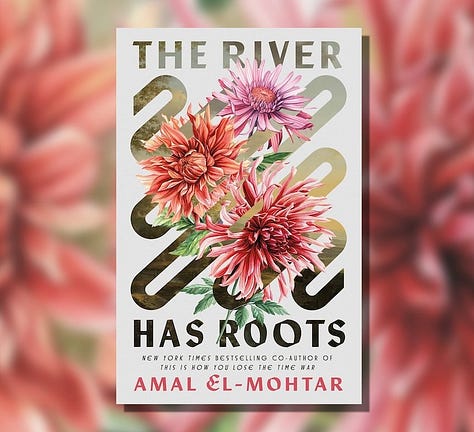
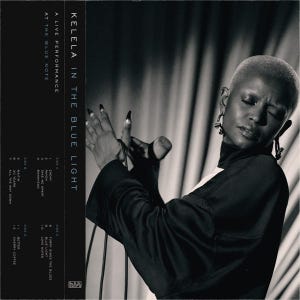
Any song by Ichiko Aoba, Japanese singer-songwriter with a lullaby-esque voice that is just perfect for spring/early summer. Asleep Among Endives, aurora, meringue doll, Dawn in the Adan, and A Hill of the Moon are some of my favorites. If you like comfy vibes, singers with clear and beautiful voices, and Studio Ghibli, you’ll love her music.
The River Has Roots by Amal El-Mohtar is the debut novel by the co-author of This is How You Lose the Time War! I want to read this SO badly that I’m chewing at the walls. All I know is that it’s about a family that tends to an enchanted forest, and that’s all I need to know. I’ve flipped through a copy at my local indie and I was struck by how beautiful the interior page designs were. Hopefully I’ll get to this one soon.
Finally, we have Kelela’s most recent album, In the Blue Light. It’s a live jazz album recorded at the Blue Notes Jazz Club. Need I say more? This is my first introduction to Kelela, but I’ve read that the performances here are actually re-interpretations of her own songs, which I think is so unbelievably chic. If you like the sort of music that makes you close your eyes and sway, you’ll enjoy this rec. Some of my faves are All the Way Down, Better, Enemy, and Bankhead.
where to find me.
Website: ashiamonet.com
X/Twitter: @ashiamonet
Tiktok and Instagram: @ashiawrites
This was, quite literally, my experience. Maybe I’ll write about it in the future!





Reading this while I’m in the middle of a writing slump really helped me be more gentle with myself. It’s hard to enjoy the little moments when you’re beckoning the big moment to come. Thank you!!
Thanks for this post. I found it reflective and the recommendations delightful...